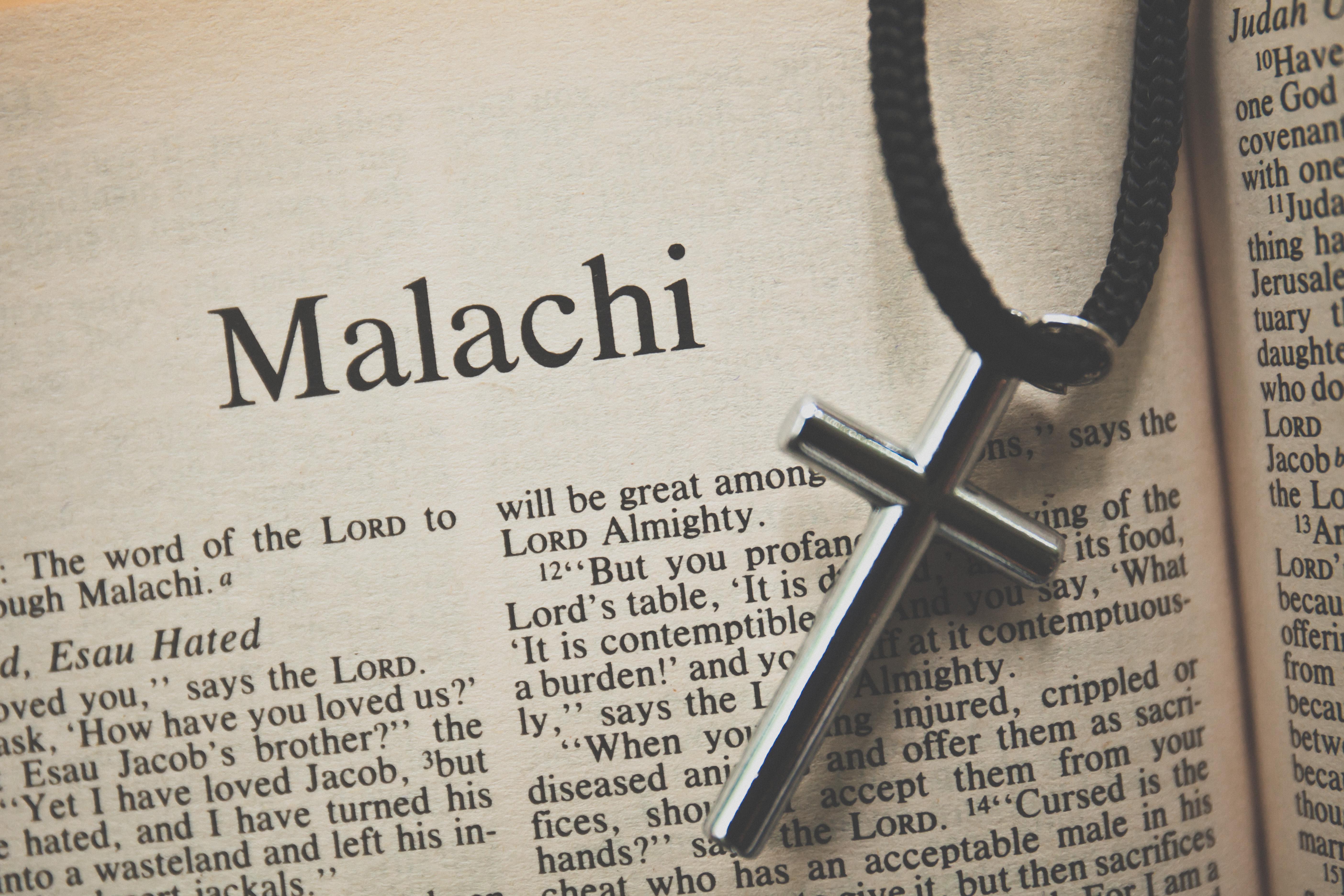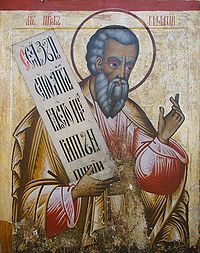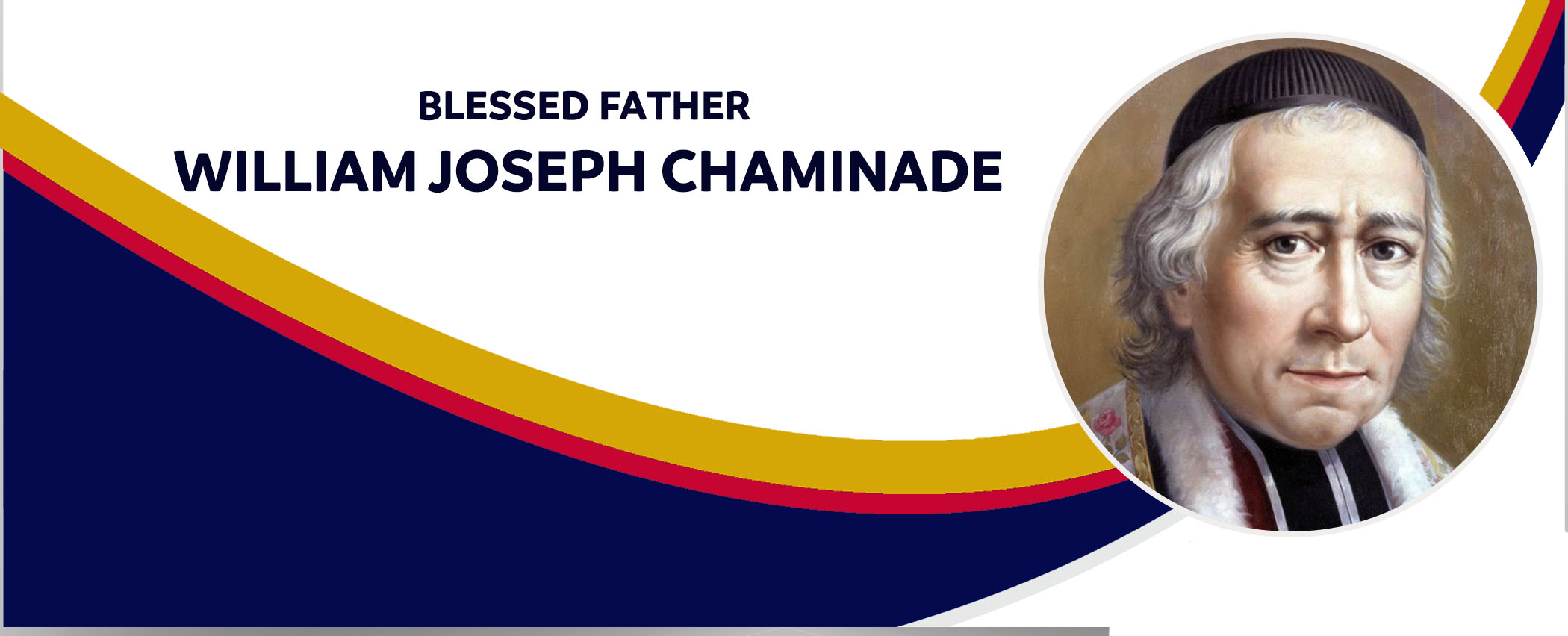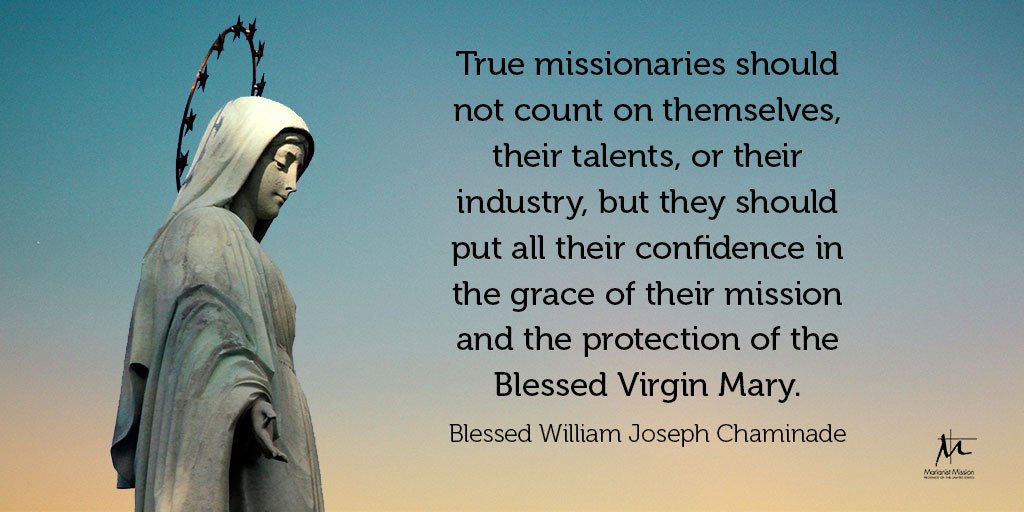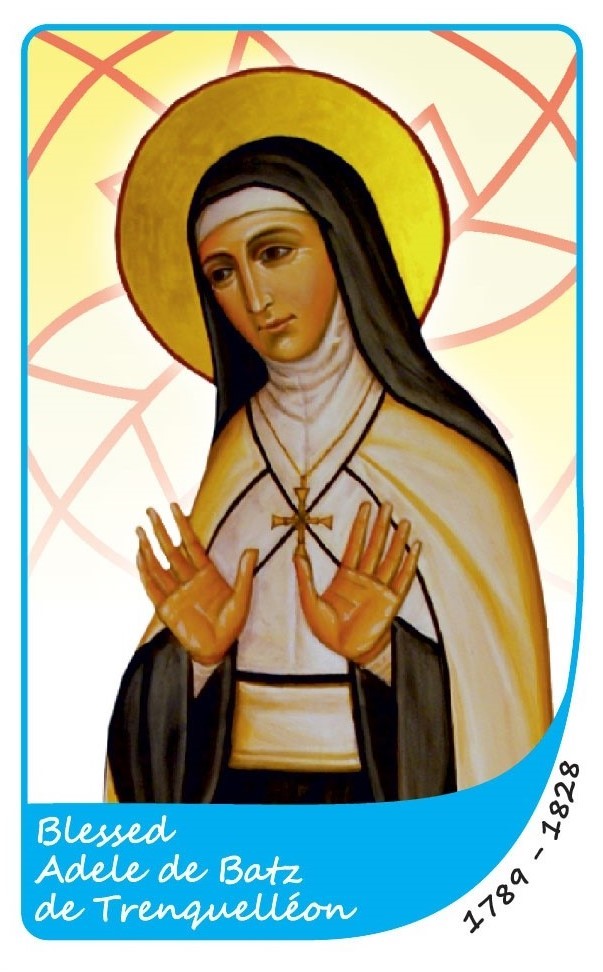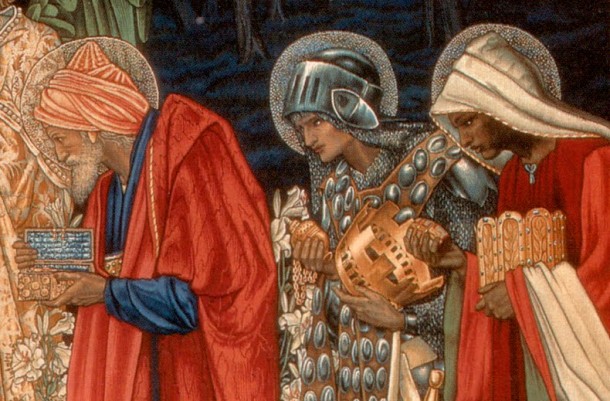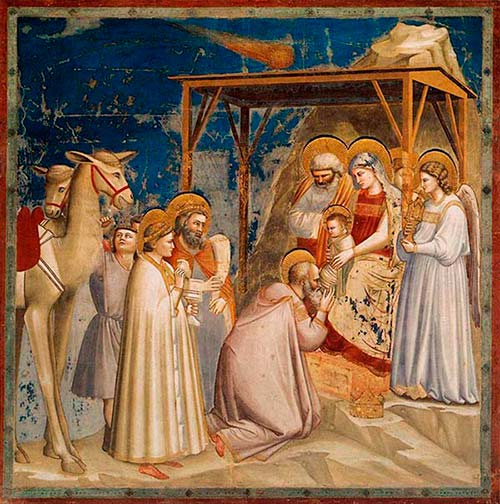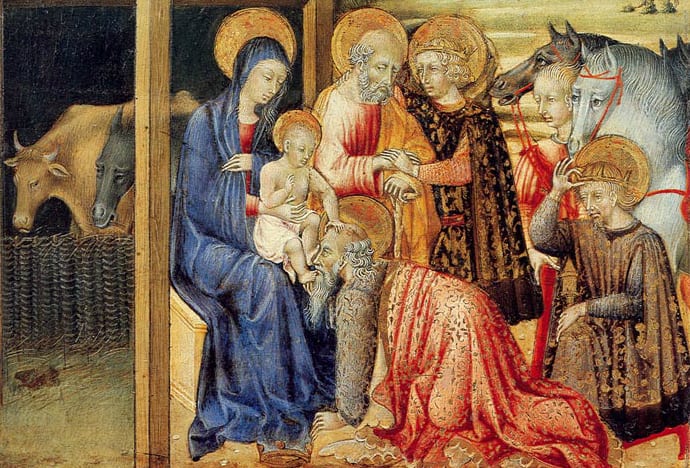The upcoming Sunday selections from the prophet Malachi offers us a scene when Malachi speaks the word of the Lord. Although he himself is a messenger from God, he tells the people of another messenger to come, suddenly and without warning, who will be an advance man for God Almighty. And that messenger's job will be to make the way ready for the Lord. That messenger will function like a refining fire that rids gold and silver of impurities, only his fire will purify the people.
Friday, January 31, 2020
Thursday, January 30, 2020
The Sunday Word
There is no better way to prepare for this Sunday's celebration then to reflect on our readings given to us by the Church. Our first reading comes to us from the prophet Malachi:
Thus says the Lord GOD:
Thus says the Lord GOD:
Lo, I am sending my messenger
to prepare the way before me;
And suddenly there will come to the temple
the LORD whom you seek,
And the messenger of the covenant whom you desire.
Yes, he is coming, says the LORD of hosts.
But who will endure the day of his coming?
And who can stand when he appears?
For he is like the refiner’s fire,
or like the fuller’s lye.
He will sit refining and purifying silver,
and he will purify the sons of Levi,
Refining them like gold or like silver
that they may offer due sacrifice to the LORD.
Then the sacrifice of Judah and Jerusalem
will please the LORD,
as in the days of old, as in years gone by.
 In 1928, Dietrich Bonhoeffer preached a sermon in Barcelona in which he spoke about the emotions surrounding the coming of the LORDfor this season: "It is very remarkable that we face the thought that God is coming so calmly," he said, "whereas previously peoples trembled at the day of God. ... We have become so accustomed to the idea of divine love and of God's coming at Christmas that we no longer feel the shiver of fearthat God's coming should arouse in us. We are indifferent to the message, taking only the pleasant and agreeable out of it and forgetting the serious aspect, that the God of the world draws near to the people of our little earth and lays claim to us ..."
In 1928, Dietrich Bonhoeffer preached a sermon in Barcelona in which he spoke about the emotions surrounding the coming of the LORDfor this season: "It is very remarkable that we face the thought that God is coming so calmly," he said, "whereas previously peoples trembled at the day of God. ... We have become so accustomed to the idea of divine love and of God's coming at Christmas that we no longer feel the shiver of fearthat God's coming should arouse in us. We are indifferent to the message, taking only the pleasant and agreeable out of it and forgetting the serious aspect, that the God of the world draws near to the people of our little earth and lays claim to us ..."
to prepare the way before me;
And suddenly there will come to the temple
the LORD whom you seek,
And the messenger of the covenant whom you desire.
Yes, he is coming, says the LORD of hosts.
But who will endure the day of his coming?
And who can stand when he appears?
For he is like the refiner’s fire,
or like the fuller’s lye.
He will sit refining and purifying silver,
and he will purify the sons of Levi,
Refining them like gold or like silver
that they may offer due sacrifice to the LORD.
Then the sacrifice of Judah and Jerusalem
will please the LORD,
as in the days of old, as in years gone by.
 In 1928, Dietrich Bonhoeffer preached a sermon in Barcelona in which he spoke about the emotions surrounding the coming of the LORDfor this season: "It is very remarkable that we face the thought that God is coming so calmly," he said, "whereas previously peoples trembled at the day of God. ... We have become so accustomed to the idea of divine love and of God's coming at Christmas that we no longer feel the shiver of fearthat God's coming should arouse in us. We are indifferent to the message, taking only the pleasant and agreeable out of it and forgetting the serious aspect, that the God of the world draws near to the people of our little earth and lays claim to us ..."
In 1928, Dietrich Bonhoeffer preached a sermon in Barcelona in which he spoke about the emotions surrounding the coming of the LORDfor this season: "It is very remarkable that we face the thought that God is coming so calmly," he said, "whereas previously peoples trembled at the day of God. ... We have become so accustomed to the idea of divine love and of God's coming at Christmas that we no longer feel the shiver of fearthat God's coming should arouse in us. We are indifferent to the message, taking only the pleasant and agreeable out of it and forgetting the serious aspect, that the God of the world draws near to the people of our little earth and lays claim to us ..."Wednesday, January 29, 2020
Malachi
Tuesday, January 28, 2020
Malachi 1
Monday, January 27, 2020
Knock or Kick
I am not too sure everyone remembers this famous painting on the left that shows Jesus standing at a doorway in a garden, patiently knocking on the door? It's usually understood as picturing Christ's asking admission into our hearts. But for many of us, our surrender to Christ came not because he gently asked permission to come into our lives. It was more like he kicked the door in and entered like an intruder, commandeering space and making it clear that he was taking over, at least for a while. Eventually we made a choice about whether or not to let him remain, but, initially, our defenses were overwhelmed.
Sunday, January 26, 2020
Julian of Norwich
--Julian of Norwich, Revelations of Divine Love, from Daily Readings with Julian of Norwich
Saturday, January 25, 2020
Bonhoeffer
A prison cell, in which one waits, hopes, does various unessential things and is completely dependent on the fact that the door of freedom has to be opened from the outside, is not a bad picture of Advent.
--Dietrich Bonhoeffer, Letters and Papers from Prison, November 21, 1943
Tuesday, January 21, 2020
And Joseph, Rising

The legacy of Saint Joseph is a mysterious one. He is truly the father of Jesus, our Lord, but not according to the flesh. He is the man who named the boy Jesus, but also a man of silence. He is a man of dreams and a man of action.
A pattern arises in Saint Matthew’s Gospel—we know it well—where Joseph is visited by an angel in a dream and given instructions. Within this pattern, we notice a key word: “rise.” Three times (read them here), we hear the words of the angel in Joseph’s dream, and three times the dream is followed by “And Joseph, rising” or “And rising, he took.” As if to stress this pattern for us, the first word in both the second and third angelic message is “rise!”
Joseph is the man who rises and does what is asked of him. First, he takes Mary as his wife, and then he takes the child and his mother into Egypt, and finally he brings them back again. (Then there’s a last little dream we don’t get to listen to, which tells him to settle in Nazareth.)
To rise and do the will of the Lord—this is the vocation of the prophet. It is exactly what Jonah doesn’t do, for instance (he rises and flees). It is the preacher’s call to the redeemed people of God. And perhaps most significantly, it is exactly what Abraham does when he goes to offer up his beloved son to the Lord (Gen 22:1-3).
Joseph is the man who rises to serve the Lord, and we are his children. His example is especially important for his many sons who imitate him in fatherhood, but it also appeals to all who walk in the ways of God. For now, we’ll take just one lesson from the story of St. Joseph.
We must always be ready to rise.
Throughout the scriptures, as in the life of St. Joseph, “arising” indicates a readiness to give oneself to the good works God has laid before us (Eph 2:10). On the most basic level, this means we should not be sleepy-heads, but rise up in the morning and like St. Joseph, set our hands to the tasks God gives us. In a more general sense, we must never let our recreation and repose stop us from being generous. In an age of binge-watching and social media, when we are surrounded by ways to self-medicate, let us not succumb to the noise and become deaf to the needs of those around us! Whenever we stand in readiness to serve, we join St. Joseph in love for Jesus and his mother.
Let us who are Baptized live according to what we truly are: “sons of light and sons of the day” (1 Thess 5:5). So, in all our rest, even in the sleep of death, we will be ready to rise.
By Br. Isaiah Beiter, O.P. on January 20, 2020
Monday, January 20, 2020
Blessed William Joseph Chaminade
Sunday, January 19, 2020
THE RIGHT TO CALL ANOTHER TO A VOCATION
Recently I participated in an International Conference on vocations. It gathered a wide assortment of persons to reflect upon why less people in the Western world are entering the priesthood and consecrated religious life.
It was a wonderful event, filled with prayer, hope, and energy. It was too a time of reflection on strategy: What might we be doing, practically, in terms of attracting more people into priesthood and religious life?
What became clearer as the conference went on is that, in terms of drawing people into a deep religious commitment of any kind, strategy is not what is ultimately at issue. What is? Depth of commitment and sanctity within our own lives.
Simply put: Those of us who profess to be committed need to give our lives over to God in a deep enough way so that we have the right and power to call others to give themselves over in the same way. Only someone who has, without bitterness and too much compromise, given over his or her life in self-sacrifice has the power to ask something similar of another. What this means is that we shouldn’t expect anyone to follow us in faith, in church, or in vocation if we, in our own lives, are half- hearted, self-pitying, bitter, and forever whining. No strategy can compensate for that.
The concept can best be explained by an example. Mother Theresa had great power in drawing young women into her community and in drawing others, both women and men, into a deeper faith and church commitment. She didn’t do this by any clever strategy, nor by any exceptional theology. She did it by the power that was created by the depth, honesty, and joy of her own commitment. She had the power and right to call others because she had given herself over deeply enough. Only someone who has laid down his or her life in self-sacrifice has the right and, more importantly, the power to ask the same thing of another.
This is an important principle of spirit, even if it is only understood at the level of feeling. This is an equation that works under the surface. People have sensitive radar screens and they are forever picking up and knowing things that they are not aware of consciously. Hence others are always looking at us (who profess faith and commitment) and making deep, unconscious (and valid) judgements about us: Has this person really put his or her life on the line? Is he or she at peace with this? How much blood is this person really sweating? Is this about God or about self-interest and self-protection? Is this about God or about some cause (however noble)? Has this person the right to ask me for my life?
There’s often an interesting irony here: At a conscious level, someone might well like us and be attracted to us and what we stand for, even as, at a deeper unconscious level, they (on the basis of our witness) are unwilling to give anything over that costs real life. The reverse can also be true. For example, a lot of people didn’t particularly like Mother Theresa and wouldn’t have picked her as someone they wished as a friend (though they wanted her as a photo opportunity, to write into their curriculum vitae). Yet, personal attraction aside, underneath they were moved so that she could ask for their blood and they would give it. The power to ask for real life and full self-sacrifice depends not upon the attractiveness of my person, nor even on the truth of my causes, but on the depth of my commitment. Only if I have actually given my life over do I have the power to ask the same of someone else.
That’s a scary thought in terms of vocations today. Don’t get me wrong: For the most part, we (clergy, committed laity, vowed religious) are very good-hearted and generous. The problem is that often we are also half-hearted and given over to a self-pity, bitterness, infighting, ideology, and various modes of private compensations that have us claiming back for ourselves too much of what we once vowed to God. We all know, too well, the truth of Michel Quoist’s famous prayer on commitment: “Lord, I gave myself over to you in the fervour of my youth. I’m your priest. But every day the man in me tries to take back what the priest once gave you!”
A couple of years ago, one of our Oblate provincials, in commenting about his struggle in trying to lead and animate a group of priests and brothers through a painful, dispirited time – lawsuits for sexual abuse, departures from religious life, aging personnel, community infighting, lack of people wanting to join our ranks, and the anger of some of those within our ranks – made this remark: “We would need a saint in a time like this!” How true! Our problem is not one of strategy and marketing, but of sanctity.
Ronald Rolheiser, O.M.I.
Saturday, January 18, 2020
Blessed William Joseph Chaminade
REFLECTION ON VOCATIONS
JUNE 1, 2003
Shortly after he entered the Trappists, Thomas Merton wrote up the story of his conversion and journey to a monastery in a book, Seven- Story Mountain. It became a best-seller that, among other things, caught the romantic imagination of his generation. For years afterwards, Trappist monasteries were flooded with applications, not all for the right reasons of course, but a large number of men did become good monks because of a romantic ideal that Merton’s story triggered.
The absence of this kind of romantic ideal is, to my mind, one of the main reasons why today, in the Western world, fewer and fewer men and women are responding to the call to priesthood and religious life.
We need again an ideal for priesthood and religious life that people can fall in love with, something that inflames the romantic imagination. That’s absent today. Our very sophistication, it seems, is killing us. We are openly weary and often cynical about these vocations. No surprise we get few takers. “No romantic illusions allowed!” seems to be the catch-phrase. If we applied that criterion to marriage there would be few takers there as well.
Mature commitment, at a point, depends upon wilful decision and not upon naivete, romantic feelings, conscriptive duty, or lack of other opportunities. I very much like an expression used by Marriage Encounter groups: “Love is a decision!”, they say. They’re right. We can, and often do, make commitments out of naivete, lack of opportunity, or romantic feelings, but we won’t sustain them long-term, at least not without resentment or infidelity, unless, at some point, we re-choose them in a new and purer way.
Maturity comes with that. We’re mature only when we choose to love, serve, obey, bow down, give over our freedom, and give over ourselves to someone or something because we know and accept that this is the right thing to do, irrespective of how we feel about it on a given day or what more attractive options might be beckoning.
But – that’s not true initially. First you have to fall in love! Every romantic, mystic, or poet, knows that. Married folks too know it. Granted, at some point after the honeymoon love has to become a decision, but that’s not what initially brings you to marriage. First you fall in love. You get seduced by an ideal. That ideal turns out to be partly an illusion, but it’s what’s gives you the courage to pull the trigger and give yourself over in the first place. “All miracles begin with falling in love!”, says Morris West. Most life-long commitments begin in the same way.
We need, again, to have a romantic ideal about the vocations of priesthood and religious life, otherwise we can expect still fewer priests, nuns, and religious brothers in the future.
That immediately raises the question: What makes for such a romantic ideal? What did Merton’s book have that present books on the priesthood and religious life do not have?
What works and what doesn’t? Mother Theresa’s ideal, for example, fires the romantic imagination for some, though not for others. She was a saint and her ideal of religious life, austere though it may be, is, if anything, wonderfully romantic. But why hasn’t it led to a deluge of young women banging on convent gates in the Western world?
Perhaps more interesting for us in a highly secularize context is the ideal of religious life that is depicted in Sister Helen Prejean’s, Dead Man Walking. Her story has some key similarities to Seven Story Mountain: Both are confessional, good works of art, make morality attractive, are subtly invitational, show religious life under a good light, are wonderfully romantic, and unearth the hidden monk and nun inside each of us. Both Seven Story Mountain and Dead Man Walking make priesthood and religious life a romantic thing. Why hasn’t the latter stirred up the same vocational romance as the former? I wish I knew.
There are many reasons why, in the Western world today, our rectories, convents, seminaries, and monasteries are greying and emptying. Conservatives attribute it to secularity, to a lost sense of self- sacrifice, to an incapacity in many people to make a life-long commitment, to the sexual revolution, and to an erosion of faith in the culture. Liberals suggest other reasons: an emerging laity is a message from the spirit about vocations, an all-male priesthood and the ecclesially-imposed discipline of celibacy need an overhaul, and the priesthood and religious life need to take on new forms before we can again in conscience call people into them.
There’s some truth in all of these reasons, though none are the real culprit. What is? We lack a romantic ideal for these vocations. They’ve been subjected to a scorching exorcism and now it’s time to move on. We need to restore to them their angels, their proper light, their beauty. We need to re-romanticize priesthood and religious life and give people something beautiful to fall in love with.
Ronald Rolheiser, O.M.I.
Thursday, January 16, 2020
Wednesday, January 15, 2020
Blessed William Joseph Chaminade
Tuesday, January 14, 2020
Bl. William Joseph Chaminade
Monday, January 13, 2020
Bl. William Joseph Chaminade
Sunday, January 12, 2020
Saturday, January 11, 2020
Friday, January 10, 2020
Celebrate Blessed Adele 2
Thursday, January 9, 2020
Wednesday, January 8, 2020
Marianist spirituality
When an educator is truly present to students, students are changed. An educator personally transformed through a faith of the heart teaches students to be not only competent and capable, but also faithful and compassionate. For Marianist educators, a solid grasp of subject matter and effective, creative pedagogical techniques are congruent with and necessarily complemented by a living awareness of the inescapably moral and spiritual dimensions of education.
Tuesday, January 7, 2020
Celebrate Blessed Adele
“We do not bear our cross alone, for [Jesus Christ] helps to bear it with us. In fact, he bears three-fourths of its weight.”
Monday, January 6, 2020
Sunday, January 5, 2020
A King to Behold
A King to Behold: Scott Hahn Reflects on the Solemnity of the Epiphany of the Lord
An “epiphany” is an appearance. In today’s readings, with their rising stars, splendorous lights, and mysteries revealed, the face of the child born on Christmas day appears.
Herod, in today’s Gospel, asks the chief priests and scribes where the Messiah is to be born. The answer Matthew puts on their lips says much more, combining two strands of Old Testament promise—one revealing the Messiah to be from the line of David, the other predicting “a ruler of Israel” who will “shepherd his flock” and whose “greatness shall reach to the ends of the earth.”
Those promises of Israel’s king ruling the nations resound also in today’s Psalm. The psalm celebrates David’s son, Solomon. His kingdom, we sing, will stretch “to the ends of the earth,” and the world’s kings will pay Him homage. That’s the scene too in today’s First Reading, as nations stream from the East, bearing “gold and frankincense” for Israel’s king.
The Magi’s pilgrimage in today’s Gospel marks the fulfillment of God’s promises. The Magi, probably Persian astrologers, are following the star that Balaam predicted would rise along with the ruler’s staff over the house of Jacob.
Laden with gold and spices, their journey evokes those made to Solomon by the Queen of Sheba and the “kings of the earth.” Interestingly, the only other places where frankincense and myrrh are mentioned together are in songs about Solomon.
One greater than Solomon is here. He has come to reveal that all peoples a re “co-heirs” of the royal family of Israel, as today’s Epistle teaches.
His manifestation forces us to choose: will we follow the signs that lead to Him as the wise Magi did? Or will we be like those priests and scribes who let God’s words of promise become dead letters on an ancient page?
Herod, in today’s Gospel, asks the chief priests and scribes where the Messiah is to be born. The answer Matthew puts on their lips says much more, combining two strands of Old Testament promise—one revealing the Messiah to be from the line of David, the other predicting “a ruler of Israel” who will “shepherd his flock” and whose “greatness shall reach to the ends of the earth.”
Those promises of Israel’s king ruling the nations resound also in today’s Psalm. The psalm celebrates David’s son, Solomon. His kingdom, we sing, will stretch “to the ends of the earth,” and the world’s kings will pay Him homage. That’s the scene too in today’s First Reading, as nations stream from the East, bearing “gold and frankincense” for Israel’s king.
The Magi’s pilgrimage in today’s Gospel marks the fulfillment of God’s promises. The Magi, probably Persian astrologers, are following the star that Balaam predicted would rise along with the ruler’s staff over the house of Jacob.
Laden with gold and spices, their journey evokes those made to Solomon by the Queen of Sheba and the “kings of the earth.” Interestingly, the only other places where frankincense and myrrh are mentioned together are in songs about Solomon.
One greater than Solomon is here. He has come to reveal that all peoples a re “co-heirs” of the royal family of Israel, as today’s Epistle teaches.
His manifestation forces us to choose: will we follow the signs that lead to Him as the wise Magi did? Or will we be like those priests and scribes who let God’s words of promise become dead letters on an ancient page?
Saturday, January 4, 2020
The pointer
Friday, January 3, 2020
The star
Thursday, January 2, 2020
Glory is revealed
On Epiphany Day, God’s style was revealed to the world when the wise men made their visit to the baby Jesus. Matthew tells us that they followed a bright star to Bethlehem, and “on entering the house, they saw the child with Mary his mother; and they knelt down and paid him homage” — they gave him glory. The wise men were the first to see that Jesus reveals the grace and love of God to the world in a bright and unmistakable way. He is a child who grows up to show God’s style in everything he says and does.
So Epiphany is all about the glory of God being revealed to the world.
So Epiphany is all about the glory of God being revealed to the world.
Subscribe to:
Posts (Atom)

